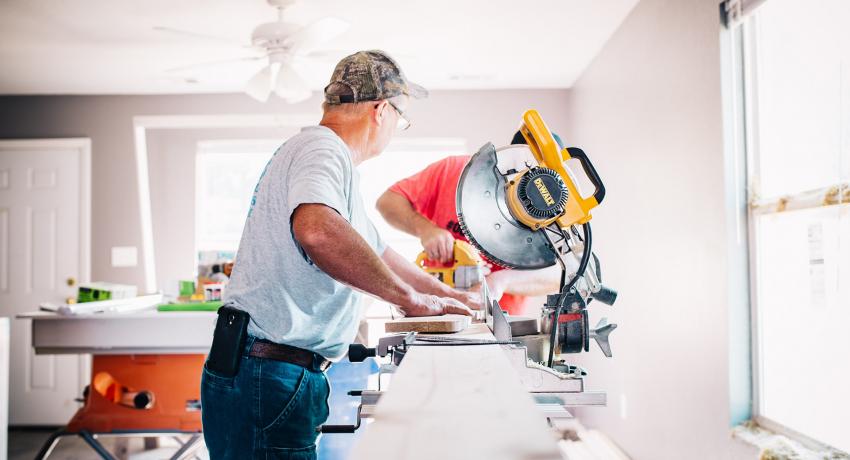
Extra Costs to Consider When Owning a Home
When making the move from renter to homeowner, it’s easy to think your monthly mortgage payment will be the only big cost you’ll need to be concerned about. Many first-time homeowners make this mistake, and then discover all the additional costs after buying their home. However, this common mistake can be avoided. Here are some extra costs that should be included when you’re establishing a monthly housing budget.
Homeowners Association Fees
If you’re buying a home or condo that’s part of a neighborhood association, you’ll more than likely have a Homeowners Association (HOA) fee. HOA fees help pay for neighborhood upkeep including landscaping, clubhouses, pools, basketball courts, tennis courts, etc. This mandatory cost can go up with inflation, so it can change from year-to-year. According to Cobalt Creek Property Management, the average HOA cost in Denver can be anywhere from $200-$400 per month.
Trash and Utilities
As a renter, trash removal and utilities are typically services rolled into your monthly rent payment. However, as a homeowner, you’re responsible for paying for these services yourself. If your neighborhood has an HOA, check to see if trash removal is included in your fee. If it’s not, this is something you’ll have to set up on your own. You’ll also have to ensure you transfer the water and electricity services into your name after buying a home.
Property Taxes
Property taxes must be paid by all homeowners. This cost is partially determined off the area in which you live. For example, the current property tax rate in Denver County is 0.50 percent. This means you would pay 0.50 percent of your home’s value in property taxes. So, if your home is worth $350,000, your property taxes for the year would equal $1,750. However, that’s not the only determining factor; they also consider road maintenance, changes in tax laws, sales of similar homes and a number of other factors. Budgeting for property taxes each year can be tricky as the cost can rise unexpectedly.
Insurance
As a renter, you hopefully had renters insurance to protect your personal property in the event of a fire or theft. As a homeowner, you will be required to have homeowners insurance, which will cover both your personal property and your home in the event of a partial or total loss. Homeowners insurance is often more expensive than first-time home buyers expect. According to Bankrate, Colorado homeowners pay an average cost of $1,659 per year for $250,000 in dwelling coverage. This breaks down to around $138 per month. Homeowners insurance is necessary to protect what is probably your biggest investment. It’s important to shop around and find the best deal with the best coverage.
Snow removal
The Denver-area is known for getting heavy snow falls each winter. If you’re not able to shovel the snow yourself, you’ll have to factor in the cost of snow removal whether you’re paying a neighborhood kid, a snow removal company or buying a snowblower. Figuring this out will help you determine if snow removal is a one-time cost or an ongoing cost.
Lawncare
Living in an apartment, you didn’t have to worry about mowing the lawn, but as a homeowner, if you have a yard with grass it will be necessary to own a lawnmower or hire someone to mow for you. Either way, you’ll have to factor in those expenses when making your budget.
Home maintenance and repairs
There’s no calling the landlord when something needs to be fixed at the home you own. As a homeowner, you’re responsible for maintaining your home and making any necessary repairs—and all the costs that go with it. Since you never know when your water heater is going to go out or when your kitchen faucet will need replaced, it’s a good idea to start an emergency fund. That way when something in your home needs to be repaired, you’ll already have money set aside to help out.
Refinancing expenses
While all the extra costs need to be considered when buying a home, your mortgage payment is most likely going to be your biggest monthly expense that you can count on. Refinancing your mortgage can sometimes lower your interest rate, which in turn, lowers your monthly mortgage payment. If down the line you decide to refinance your mortgage, keep in mind there could be fees that go with it. It’s important to know all the costs associated with refinancing before you move forward. Right now, when you purchase or refinance your home with Partner Colorado, you’ll pay no origination fee. The origination fee is usually one percent of your total loan amount. That means, if your loan is $300,000, your origination fee would be $3,000. But with a loan from us, that money stays with you.
There’s no doubt that owning your own home takes a lot of work, but it’s worth it. Instead of paying someone else’s mortgage, you’ll be paying your own.









